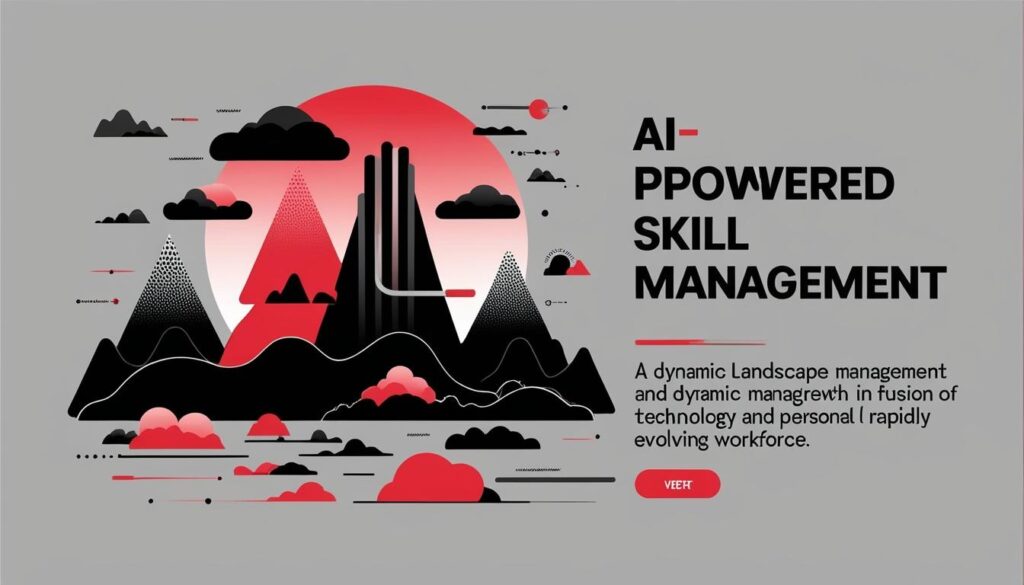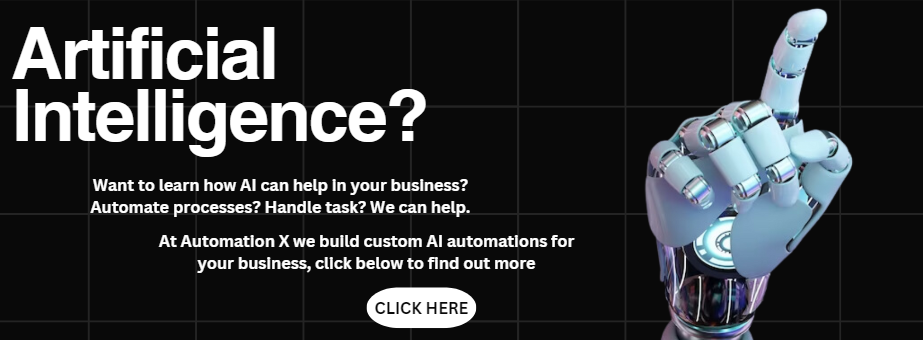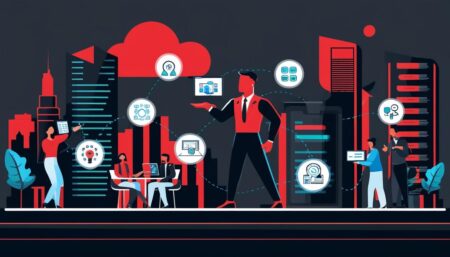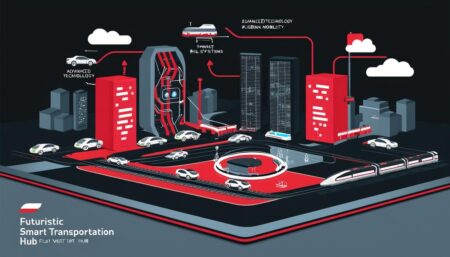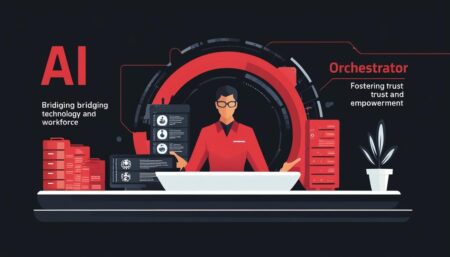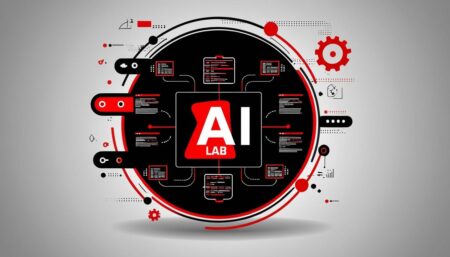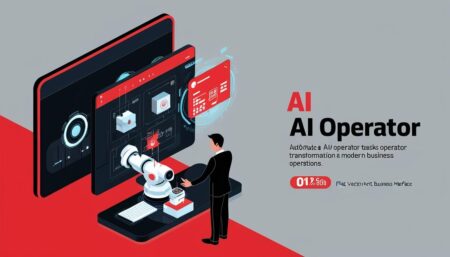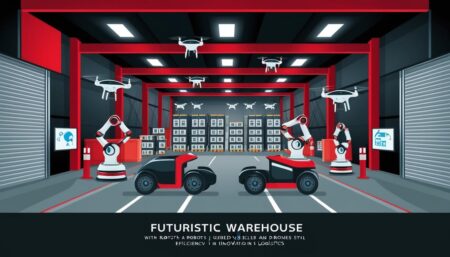As companies adapt to technological advances, a new paradigm in skill assessment and development is essential for future readiness and organisational growth.
As the landscape of employment shifts rapidly due to technological advancements, companies now face the pressing need to implement effective AI-enabled technology to enhance their operations. The focus has shifted towards the management of skills within the workforce, which have become increasingly dynamic and complex. In response to these changes, businesses must explore innovative methods to assess and develop the capabilities of their employees, fostering growth and adaptability.
The need for a modern approach to skill assessment stems from what is referred to as “Skill Velocity,” a phenomenon where skills and their relationships evolve dramatically, often influenced by the advent of AI technologies. Traditional assessment frameworks, which frequently rely on employee self-evaluations, have been found insufficient in capturing these developments accurately. Companies are challenged to find objective and timely methods to evaluate skills in a landscape where yesterday’s crucial competencies may no longer hold relevance.
One of the key challenges enterprises encounter is “Skill Visibility.” Although new skills may be acquired rapidly, they often go undocumented in standard surveys and update profiles, resulting in what are termed “shadow skills.” Additional complications arise with “Skill Validation,” as there is often a discrepancy between the skills employees claim to possess and their evidence-based capabilities. This makes it imperative for organisations to implement a comprehensive and dynamic skill management approach that can keep pace with the shifts in skill relevance.
To address these challenges, companies are encouraged to systematically analyse relevant employee documents and work products. The use of AI-enhanced technologies allows organisations to infer skills and proficiency levels even when specifics are not articulated in available data. Automating the ingestion and presentation of skills data can yield near real-time insights, empowering both employees and management.
Management is also tasked with ascertaining whether their employees are prepared to meet future competitive demands. As businesses grapple with the integration of AI, there is increasing pressure to modernise product lines, streamline processes, and improve customer engagements to fully harness the technology’s potential. Employees, too, experience the strain of job insecurity linked to AI advancements, particularly with large language models capable of producing high-quality outputs in seconds.
AI-enabled systems can facilitate comprehensive evaluations of both individual and organisational skill gaps, identifying emerging and strategically important competencies for development. By implementing strategic plans that focus on capability needs, organisations can monitor necessary skill growth effectively. The promise of AI does not merely enhance operational efficiency; the right technology is designed to democratise growth opportunities across the workforce, ensuring inclusivity rather than exclusivity.
Furthermore, fostering a culture of continuous improvement requires transparency in skill assessment processes. Employees benefit from clear visibility regarding their progress and the competencies required for advancement, while management can tailor support and development opportunities to address individual needs. The establishment of a continuous learning environment can improve employee satisfaction and retention rates, creating an ecosystem conducive to growth for both the personnel and the organisation.
As businesses navigate the challenges posed by rapid technological change, the need for a new paradigm in skill assessment and development becomes evident. By leveraging suitable AI-enabled technologies, organisations can ensure unbiased and objective evaluations of employee skills, ultimately enabling them to remain competitive and future-ready. This alignment of individual aspirations with organisational objectives nurtures a culture built on trust and loyalty, positioning companies to effectively manage upcoming challenges and capitalise on future opportunities.
Ultimately, as the workforce continues to evolve, the strategic implementation of AI technologies will play a crucial role in addressing the intricacies of skill management and development, ensuring companies are well-prepared for what lies ahead.
Source: Noah Wire Services
- https://www.sdcexec.com/professional-development/retention/article/22922666/augmentir-revolutionizing-the-workforce-with-aidriven-talent-assessment – This article supports the claim that AI-driven talent assessment is revolutionizing workforce development by providing continuous, objective, and personalized skill assessments, predicting future performance, and identifying skill gaps.
- https://workera.ai – Workera’s platform illustrates how AI-native skills intelligence can be used to build future-fit workforces, accelerate skill development, and ensure the right talent across the workforce.
- https://psico-smart.com/en/blogs/blog-the-impact-of-ai-on-technical-skills-assessment-tools-167577 – This article discusses how companies like IBM and Accenture are using AI-driven technical skills assessment tools to enhance recruitment efficiency, improve job fit, and increase workplace productivity.
- https://psico-smart.com/en/blogs/blog-the-impact-of-ai-on-technical-skills-assessment-tools-167577 – It highlights the use of AI in simulating real-world tasks, combining technical and soft skill evaluations, and continuously refining hiring algorithms to improve accuracy and reduce turnover.
- https://psico-smart.com/en/blogs/blog-the-impact-of-ai-on-technical-skills-assessment-tools-167577 – The article also mentions Unilever’s use of AI-enhanced tools for skills assessment, which accelerated their hiring process and improved the quality of hires.
- https://psico-smart.com/en/blogs/blog-the-impact-of-ai-on-technical-skills-assessment-tools-167577 – It discusses IBM’s Watson Talent platform, which uses machine learning to evaluate technical skills, reducing hiring time and increasing precision in skill matching.
- https://psico-smart.com/en/blogs/blog-the-impact-of-ai-on-technical-skills-assessment-tools-167577 – The article emphasizes the importance of AI in identifying skills gaps, tailoring learning paths, and fostering a culture of continuous learning and adaptability.
- https://www.sdcexec.com/professional-development/retention/article/22922666/augmentir-revolutionizing-the-workforce-with-aidriven-talent-assessment – This article supports the need for transparency in skill assessment processes and the establishment of a continuous learning environment to improve employee satisfaction and retention.
- https://workera.ai – Workera’s platform demonstrates how AI can be used to ensure unbiased and objective evaluations of employee skills, aligning individual aspirations with organizational objectives.
- https://psico-smart.com/en/blogs/blog-the-impact-of-ai-on-technical-skills-assessment-tools-167577 – The article underscores the strategic implementation of AI technologies in addressing the intricacies of skill management and development, ensuring companies are well-prepared for future challenges.
- https://www.sdcexec.com/professional-development/retention/article/22922666/augmentir-revolutionizing-the-workforce-with-aidriven-talent-assessment – This article highlights the role of AI in democratizing growth opportunities across the workforce, ensuring inclusivity rather than exclusivity.






